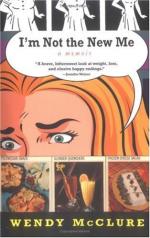There is a matter on my conscience which I can’t excuse, but may as well confess. To deceive a maiden is a very sore thing—so sore that it had made us all hot against Constantine; but it may be doubted by a cool mind whether it is worse, nay, whether it is as bad, as to contrive the murder of a lawful wife. Poets have paid more attention to the first—maybe they know more about it; the law finds greater employment on the whole in respect to the latter. For me, I admit that it was not till I found myself stretched on a mattress in the kitchen, with the idea of getting a few hours’ sleep, that it struck me that Constantine’s wife deserved a share of my concern and care. Her grievance against him was at least as great as Euphrosyne’s; her peril was far greater. For Euphrosyne was his object, Francesca (for that appeared from Vlacho’s mode of address to be her name) was an obstacle that prevented his attaining that object.
For myself, I should have welcomed a cutthroat if it came as an alternative to Constantine’s society; but probably his wife would not agree with me; and the conversation I had heard left me in little doubt that her life was not safe. They could not have an epidemic, Vlacho had prudently reminded his master; the island fever could not kill Constantine’s wife and our party all in a day or two. Men suspect such obliging maladies, and the old lord had died of it, pat to the happy moment, already. But if the thing could be done, if it could be so managed that London, Paris, and the Riviera would find nothing strange in the disappearance of one Madame Stefanopoulos and the appearance of another, why, to a certainty, done the thing would be, unless I could warn or save the woman in the cottage. But I did not see how to do either. So (as I set out to confess) I dropped the subject. And when I went to sleep I was thinking, not how to save Francesca, but how to console Euphrosyne, a matter really of less urgency, as I should have seen had not the echo of that sad little cry still filled my ears.
The news that Hogvardt brought me, when I woke in the morning and was enjoying a slice of cow steak, by no means cleared my way. An actual attack did not seem imminent—I fancy these fierce islanders were not too fond of our revolvers—but the house was, if I may use the term, carefully picketed; and that both before and behind. Along the road that approached it in front, there stood sentries at intervals. They were stationed just out of range of our only effective long-distance weapon, but it was evident that egress on that side was barred; and the same was the case on the other. Hogvardt had seen men moving in the wood, and had heard their challenges to one another, repeated at regular intervals. We were shut off from the sea; we were shut off from the cottage. A blockade would reduce us as well as an attack. I had nothing to offer except the release of Euphrosyne. And to release Euphrosyne would in all likelihood not save us, while it would leave Constantine free to play out his ghastly game to its appointed end.




